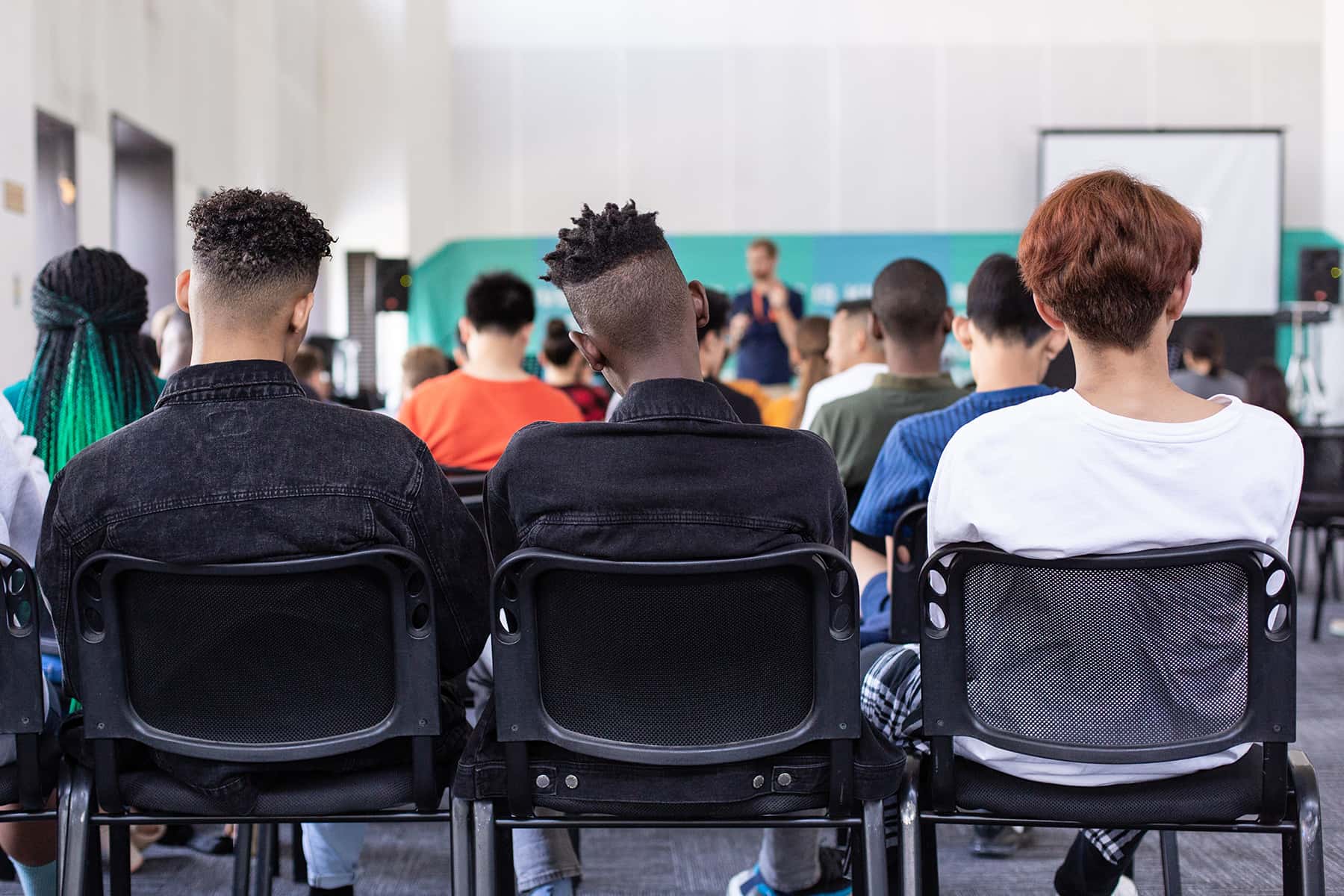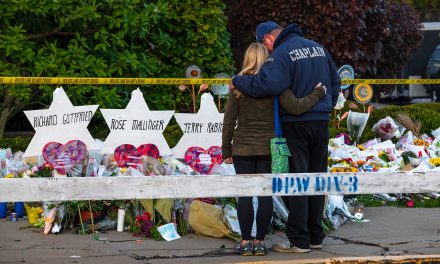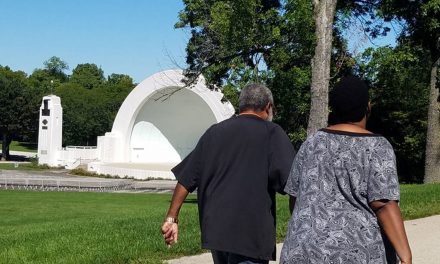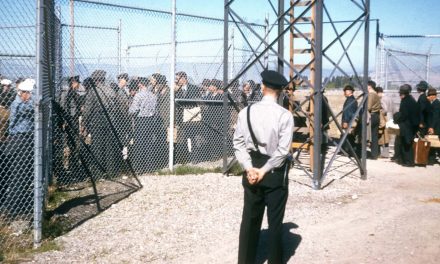
“Education is what remains after one has forgotten what one has learned in school.” – Albert Einstein
“I utterly deny, that we are originally, or naturally, or practically, or in any way, or in any important sense, inferior to anybody on this globe. [Loud applause.] This charge of inferiority is an old dodge. It has been made available for oppression on many occasions. It is only about six centuries since the blue-eyed and fair-haired Anglo-Saxons were considered inferior by the haughty Normans, who once trampled upon them… wherever men oppress their fellows, wherever they enslave them, they will endeavor to find the needed apology for such enslavement and oppression in the character of the people oppressed and enslaved.” – Frederick Douglass
As I look back on the brilliant words of Frederick Douglass, I think about how so often in this country now, people claim that some people are naturally better than some people based on arbitrary things like the amount of melanin in their skin and eyes. Race is one of those arbitrary things used by people to claim that the issues of an entire community are based on some flaw in their “culture.”
I would like to share with you a story from my childhood. As a high school student I really was pretty bored and intellectually disengaged from school. School was very monotonous on most days. A majority of my classes provided little stimulation to my mind. It is not as if the school or teachers were bad. The system was flawed.
As a youngster I loved to read. I read for pleasure away from school but rarely did I do so in school. The textbooks were boring. My notes from class, which I often re-wrote as a way to study, were boring also. There is very little I can say about my K-12 experience that sits in my collective memory as pleasant intellectual memories.
I had a White teacher tell me that I needed to do better because I was going to be judged poorly by society as a Black student if I did not. I felt insulted. In my mind I wanted to express to her that I really did not care how society judged me based on my “race.” If society cared so much about me, it would have transformed the school experience to make it more engaging and stimulating for me.
I was a smart student but not a great student. I felt disconnected from what I was learning in most classes. I did not really care about my grades but still did well. I had no burning desire to show this teacher or anyone else I was smart. I knew that I was smart and did not need school to validate that.
If I had lived in a society that valued me, the schools would have provided me with something positive about the so-called race I belonged to. It was not until much later in life that I began to get that type of stimulation. It came primarily from me being exposed to a broader picture of the world of people around me.
As I started to learn more about the varieties of people in America, I felt a strong desire to learn more. I felt motivated by the type of learning that stimulated my mind and made me question everything. As a teacher, that was something I often said to my students. Question everything!
As Americans we are rarely taught to question anything we are taught. Our education is most often in the hands of others who decide what is “best” for us. Nowadays I hear how suburban parents and others are complaining about what is taught in our schools. They claim that learning the parts of American history that include the voices of people of color, makes America look bad. They claim America is not bad.
I say give the students the choice to decide what their interpretation of America is. I am sure there are a lot of disengaged students who are saying to themselves, Why do they fail to ask us what we want?
We have a very antiquated way of educating our children that has been stuck in the past for far too long. Teachers constantly complain about the staleness of the textbooks and curricula they are forced to use. Some of them try really hard to make the material interesting and engaging. They try to craft lessons so that their students engage in critical thinking.
The reason that they are rarely as successful as they want to be, is the material they are working with makes it incredibly difficult. It is like being a comedian with bad jokes. It does not work out well.
As teachers nowadays work to show that there are more American stories than what they were taught while they were students years ago, some people say they are spoiling the experience of students learning to love their country.
Why do we force them to see the country in a way that makes them patriots? Why are we unable to treat them like human beings and give them the option of deciding for themselves. If they study America in an authentic way they will have lots of probing questions.
They will ask what happened to the Native Americans. They will ask why millions of Black people were held in bondage by a nation supposedly built on the principles of freedom, justice and liberty. They will ask why women had to fight to gain the right to vote. They will ask why many of the founders of a free republic were slaveholders. They will ask why Blacks were so often the victims of anti-black violence and hatred. They will ask why some European immigrants were treated so poorly when they arrived in America that they packed up and went back to their mother country. They will want to know why so much of what they have been taught leaves out the voices of people of color and women.
These young people, if engaged in the right way, will discuss these things openly in class instead of giving the so-called “right answers” in their classes. Isn’t there room for debate about Lincoln? He hated slavery, but wanted to ship the freed Blacks out of the country. Isn’t this worthy of a fruitful conversation and debate. Wouldn’t this be more stimulating than reading the words of the Gettysburg address?
They would ask why after the thirteenth through fifteenth amendments were passed in the years after the civil war, why Black people were still ninety years later fighting for those same basic rights they had been promised. They would ask why Native Americans signed treaties and had the U.S. government renege on them shortly after the ink dried time and time again. They would ask why the government leaders wrote the 1882 Chinese Exclusion Act, banning immigration by Chinese for decades.
Students would be inquisitive. They would no longer be empty vessels that we pour information into. They would not have their intelligence gauged by ridiculous standardized tests. They would ask who those tests were standardized on. They would ask why their self esteem is determined by their GPA. They would ask why they are learning so little about the world outside the borders of this country.
Banning the teaching of what a small group of close minded people consider “divisive concepts” would be anathema to students with open minds. They would tell us that they want to learn everything relevant to the growing diversity of the country. These students would let us know they are not afraid of the truth. They would say the truth will set their minds free. All we need to do is ask them. Adults are too busy yelling at each other to listen to children.
It is about time we rethink, not so much how we teach, but why we choose to teach in the ways that we do. It is time we recognize that the school calendar makes no sense. We are not an agrarian society anymore yet we still use a school calendar based on that time. We do not need bells to tell students when to go to their next classes. They are not going to the old 1920s factories which used bells in the same way. The clock on the wall and teachers dismissing students would serve the same purpose as bells.
I love educators now that I have walked in their shoes for eight years in the public schools in Milwaukee. Teachers understand teachers better than non-teachers do. I understand their challenges. I do not judge them by the standards of when I was in school decades ago. They have incredible challenges in city schools, suburban schools, and rural schools. Many of their students sit in class with a glaze in their eyes because they are bored to death. We do not use schools to create thoughtful, empathetic, inquisitive young people. We use school to socialize our young people into the collective mindset that supposedly makes them patriots.
The truth is that true patriots question the status quo. No nation has ever been founded by people who wanted to maintain the status quo. Every nation was founded by someone with an idea of how the world they lived in could be different.
The world is in a constant state of flux. Change is the one constant in our lives. However, a lot of people want us to act as if this is 1960, when students obeyed their teachers and never asked questions without being reprimanded. The young people in society today have minds that are in a state of flux, but we force students to accept the status quo. We do not create the types of leaders we need for the future because we stifle voices of dissent.
This is part of the rationale behind the attempts to squash wokeness. Those fighting against an inspired young person who wants to debate the merits of what they are taught, do so to maintain their positions of status. It is not about the students like they claim. They tell students of color that they should accept inferior school buildings with inexperienced teachers and an inferior education. They tell female students that they should pursue careers that are aligned with societal expectations of women. They tell students who do not conform to the gender labels we have had for centuries that something is wrong with them for not conforming.
We are messing up our children by living in a past that has been cleansed to make America look exceptional. It is far from exceptional. Democracy in America is much like democracy in many places. People are intentionally left outside the door of opportunity to participate in that democracy freely. There is no perfect democracy that has ever existed. Women have been marginalized for so long that it seems normal. Groups of people have been disenfranchised in every democracy.
In this country we have accepted segregated schools, in fact, many White people have fought for segregated schools. The Brown v. Board of Education decision in 1954 meant nothing to White people who fought to maintain their “neighborhood” schools. They knew very clearly that they wanted their children to have advantages over those “other kids.” They fled to the suburbs to escape the natural competition that would have taken place with integrated schools.
It was not until later that they consented to allowing some Black students so their basketball and football teams would be capable of winning championships. If you look at our suburban schools you will find that students of color, particularly Blacks students, are overrepresented on the football and basketball teams and highly underrepresented in the student body and advanced placement classes. They love the Black jocks, but do not push them to be the Black scholars.
Schools are in a crisis due to COVID-19, but they had issues long before the pandemic. Some of those problems have been exposed by social and racial justice activism in this country. Schools are being challenged to reckon with the demographic shifts in our population. In many school districts, they are not handling it well. Students of color are being disciplined differently, much more harshly than their white peers for similar behaviors. Students who “look” Middle Eastern are looked at with the gaze of TSA agents in the airport by their peers and adults in schools.
Non-gender conforming students are being bullied and disrespected by their peers and teachers. Schools, for far too many young people, are hostile environments. It is about time we acknowledge that we need something other than reform.
We need a complete reassessment of what our schools represent in this society. America continues to fall further behind other nations because we graduate automatons that cannot think because we do not challenge enough young people to build critical thinking skills.
We should figure out how teachers became the enemy in our culture wars. We should give them the freedom to be creative in their classrooms instead of sticking with some stale, old, so-called best practices. Open their minds and the students will follow suit.
“Education is the passport to the future, for tomorrow belongs to those who prepare for it today.” – Malcolm X
“The roots of education are bitter, but the fruit is sweet.” – Aristotle














